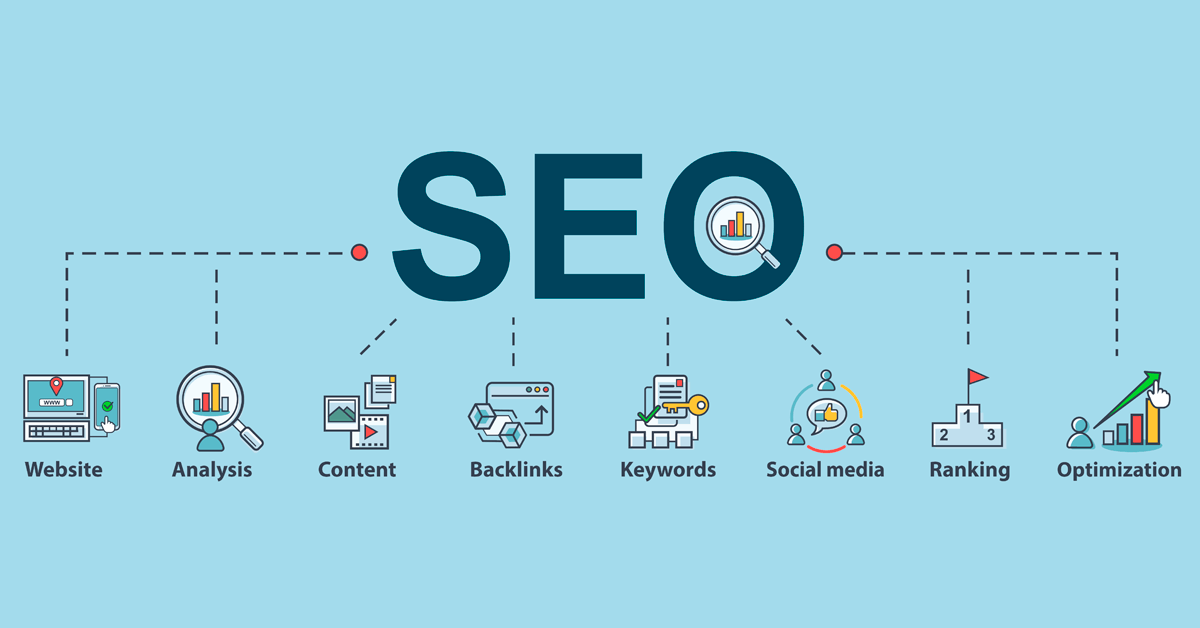
In today’s digital landscape, SEO optimization has become the holy grail for businesses aiming to achieve online success. And when it comes to search engines, Google reigns supreme. But have you ever wondered why Google places such a high importance on SEO optimization?
In this article, we delve deep into the secrets behind Google’s unwavering focus on SEO optimization. From its ever-evolving algorithms to the constant battle against spam and low-quality content, Google has made it clear that it values user experience above all else.
By optimizing your website for search engines, you not only enhance your online visibility but also improve your chances of appearing in Google’s search results pages. But what exactly does it take to rank high on Google? We uncover the key factors that influence Google’s ranking algorithm and provide actionable tips to help you boost your SEO efforts.
Join us as we lift the veil on Google’s secrets and discover why SEO optimization is an essential component of any successful online marketing strategy. Get ready to embark on a journey towards improved search engine rankings and increased organic traffic.
The importance of SEO optimization for websites
SEO optimization is crucial for websites looking to establish a strong online presence and attract organic traffic. In today’s competitive digital landscape, simply having a website is not enough. You need to ensure that your website is easily discoverable by search engines like Google.
Search engine optimization involves various techniques and strategies aimed at improving a website’s visibility in search engine results pages (SERPs). By optimizing your website, you increase the likelihood of appearing higher in search rankings, driving more organic traffic to your site.
A well-optimized website not only attracts more visitors but also enhances user experience. When users find relevant and valuable information on your website, they are more likely to engage with your content, stay longer on your site, and ultimately convert into customers or take desired actions.
Implementing SEO optimization best practices involves elements such as keyword research, on-page optimization, off-page optimization, technical optimization, and mobile optimization. By focusing on these areas, you can improve your website’s visibility, reach a wider audience, and ultimately achieve online success.
How search engines like Google determine rankings
Google’s ranking algorithm is complex and constantly evolving. It takes into account hundreds of factors to determine how websites should be ranked in search results. Understanding these factors can help you optimize your website to improve its chances of ranking higher on Google.
One of the primary factors that Google considers is the relevance of a website’s content to users’ search queries. By creating high-quality, informative, and relevant content, you increase the likelihood of ranking well for relevant keywords.
Another important factor is the authority and trustworthiness of a website. Google evaluates the quality and quantity of backlinks pointing to a website. Websites with a strong backlink profile from reputable sources are seen as more authoritative and are more likely to rank higher in search results.
User experience is also a significant factor in Google’s ranking algorithm. Websites that provide a seamless and user-friendly experience, such as fast loading times, mobile optimization, and intuitive navigation, are more likely to rank higher.
Understanding these key ranking factors and optimizing your website accordingly can significantly improve your chances of appearing on the first page of Google’s search results.
Understanding Google’s algorithm updates
Google regularly updates its search algorithm to provide users with the most relevant and high-quality search results. These updates can have a significant impact on website rankings, making it essential for website owners and SEO professionals to stay updated with the latest algorithm changes.
Google’s algorithm updates are designed to combat spam, low-quality content, and manipulative SEO practices. Updates like Panda, Penguin, and Hummingbird have reshaped the SEO landscape, rewarding websites with high-quality content and penalizing those engaging in black-hat SEO techniques.
To stay ahead of algorithm updates, it’s crucial to focus on creating valuable and relevant content for your target audience. By providing informative and engaging content, you can build a strong online presence that withstands algorithm changes and attracts organic traffic.
The correlation between SEO optimization and user experience
Google’s primary goal is to provide users with the best possible search experience. To achieve this, Google places a strong emphasis on user experience and rewards websites that prioritize it.
When users search for information on Google, they expect to find relevant and valuable content quickly. Websites that are optimized for SEO not only rank well but also provide a seamless user experience. Fast loading times, easy navigation, and mobile optimization are all factors that contribute to a positive user experience.
By optimizing your website for SEO, you indirectly optimize it for users as well. When users find your website valuable and easy to navigate, they are more likely to spend time on your site, engage with your content, and potentially convert into customers.
Creating a website that prioritizes user experience is not only beneficial for SEO but also for building a loyal customer base and establishing your brand as an authority in your industry.
Key elements of on-page optimization
On-page optimization refers to optimizing the elements on your website to improve its visibility and relevance to search engines. It involves optimizing various on-page elements, including meta tags, headings, URL structure, keyword usage, and content optimization.
Meta tags, such as the meta title and meta description, provide brief summaries of a webpage’s content. Optimizing these tags with relevant keywords can improve click-through rates and increase visibility in search results.
Headings, marked by H1, H2, H3 tags, help structure your content and provide hierarchy. Including relevant keywords in your headings can signal to search engines what your content is about and improve its visibility.
URL structure plays a role in both SEO and user experience. A clean and descriptive URL can make it easier for search engines to understand your content and improve click-through rates when displayed in search results.
Keyword usage involves strategically incorporating relevant keywords throughout your content. However, it’s important to maintain a natural flow and avoid keyword stuffing, as Google penalizes websites that engage in such practices.
Content optimization focuses on creating high-quality, valuable, and relevant content for your target audience. By providing informative and engaging content, you increase the likelihood of attracting organic traffic and establishing your website as an authority in your industry.
Off-page optimization strategies for improved search rankings
Off-page optimization refers to techniques aimed at improving a website’s visibility and authority outside of its own pages. It involves building high-quality backlinks, social media marketing, online reputation management, and influencer marketing.
Backlinks from reputable and authoritative websites play a crucial role in off-page optimization. By obtaining backlinks from relevant and trustworthy sources, you can boost your website’s authority and improve its chances of ranking higher in search results.
Social media marketing involves leveraging social platforms to promote your content, engage with your audience, and attract organic traffic to your website. By creating valuable and shareable content, you can increase your website’s visibility and reach a wider audience.
Online reputation management focuses on monitoring and managing your brand’s online reputation. By actively engaging with your audience, addressing customer concerns, and maintaining a positive online presence, you can build trust and credibility, which are factors that Google considers when ranking websites.
Influencer marketing involves collaborating with influential individuals or brands in your industry to promote your products or services. By leveraging their audience and credibility, you can increase your brand visibility, attract organic traffic, and improve your website’s authority.
Implementing off-page optimization strategies alongside on-page optimization can significantly improve your website’s search rankings and increase its online visibility.
The role of keyword research in SEO optimization
Keyword research is a fundamental aspect of SEO optimization. It involves identifying the keywords and phrases that your target audience is using to search for information related to your products or services.
By conducting thorough keyword research, you can uncover valuable insights into your target audience’s search behavior and preferences. This information allows you to optimize your website’s content, meta tags, headings, and other on-page elements with relevant keywords.
Keyword research also helps you identify high-volume and low-competition keywords that present opportunities for ranking higher in search results. By targeting these keywords in your content, you can increase your website’s visibility and attract organic traffic.
It’s important to note that keyword research should be an ongoing process. As search trends and user behavior change, so do the keywords that people use to search for information. Regularly updating your keyword strategy ensures that your website remains relevant and competitive in search rankings.
The impact of mobile optimization on search engine rankings
With the increasing use of mobile devices for internet browsing, mobile optimization has become a crucial aspect of SEO. Google recognizes the importance of providing a seamless mobile experience and has made mobile-friendliness a ranking factor.
Websites that are not mobile-friendly may experience lower search rankings and decreased organic traffic. Mobile optimization involves creating responsive designs, optimizing page load times, and ensuring that your website is user-friendly on mobile devices.
To optimize your website for mobile, consider factors such as font size, button sizes, image compression, and overall page layout. By providing a positive mobile experience, you can improve your website’s visibility and reach a wider audience.
The benefits of local SEO optimization for businesses
For businesses targeting a local audience, local SEO optimization is essential. Local SEO focuses on optimizing your website to appear in local search results when users search for products or services in their specific geographic location.
Local SEO optimization involves creating and optimizing your Google My Business profile, managing online reviews, building local citations, and targeting location-specific keywords.
By implementing local SEO strategies, you increase your visibility in local search results, attract highly targeted traffic, and increase your chances of driving foot traffic to your physical store or office.
Local SEO also helps establish your brand as a trusted and relevant choice for local consumers. By appearing in local search results and receiving positive reviews, you can build a strong local reputation and attract customers who are actively searching for businesses like yours.




